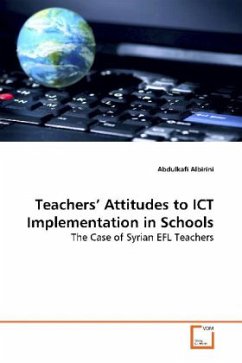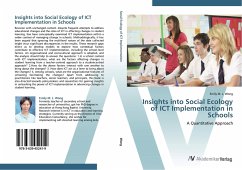This work is the first of its kind to
comprehensively examine teachers attitudes toward
the implementation of information and communication
technologies (ICT) in Syrian education and
simultaneously explore the contextual factors that
influence these attitudes. The study derives its
theoretical framework from attitudinal theories,
teacher professional development models, ICT
implementation in schools, technology diffusion in
third world countries, and cultural paradigms. The
study is grounded in both qualitative and
quantitative research methods, thus providing
insights for future research on the use of a mixed-
method trend as a mutually validating procedure. The
appendixes include a questionnaire and a semi-
structured survey that will be useful for
researchers who seek to study teachers attitudes in
other developing countries.
comprehensively examine teachers attitudes toward
the implementation of information and communication
technologies (ICT) in Syrian education and
simultaneously explore the contextual factors that
influence these attitudes. The study derives its
theoretical framework from attitudinal theories,
teacher professional development models, ICT
implementation in schools, technology diffusion in
third world countries, and cultural paradigms. The
study is grounded in both qualitative and
quantitative research methods, thus providing
insights for future research on the use of a mixed-
method trend as a mutually validating procedure. The
appendixes include a questionnaire and a semi-
structured survey that will be useful for
researchers who seek to study teachers attitudes in
other developing countries.








